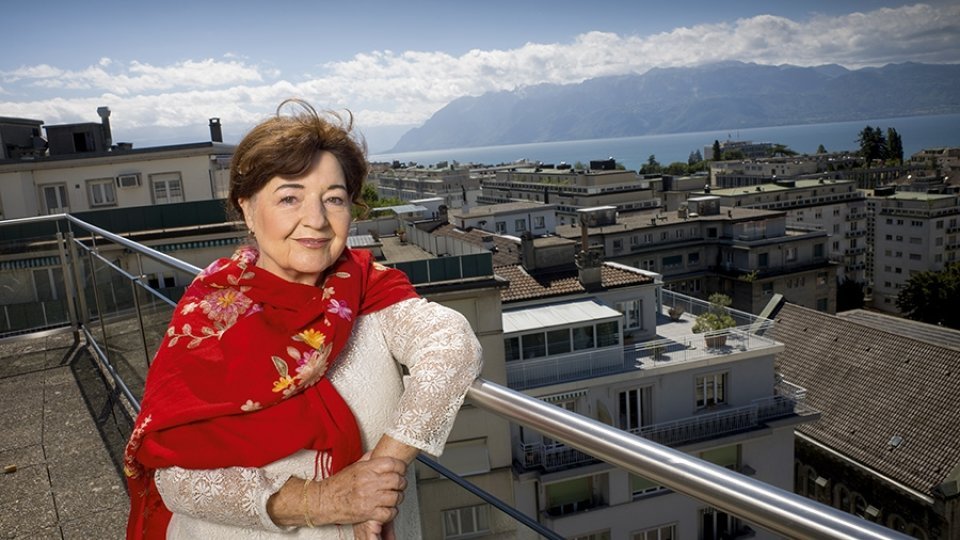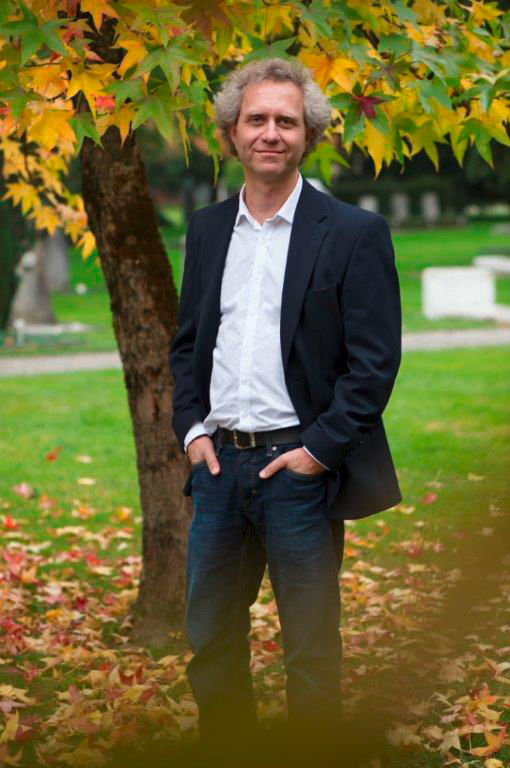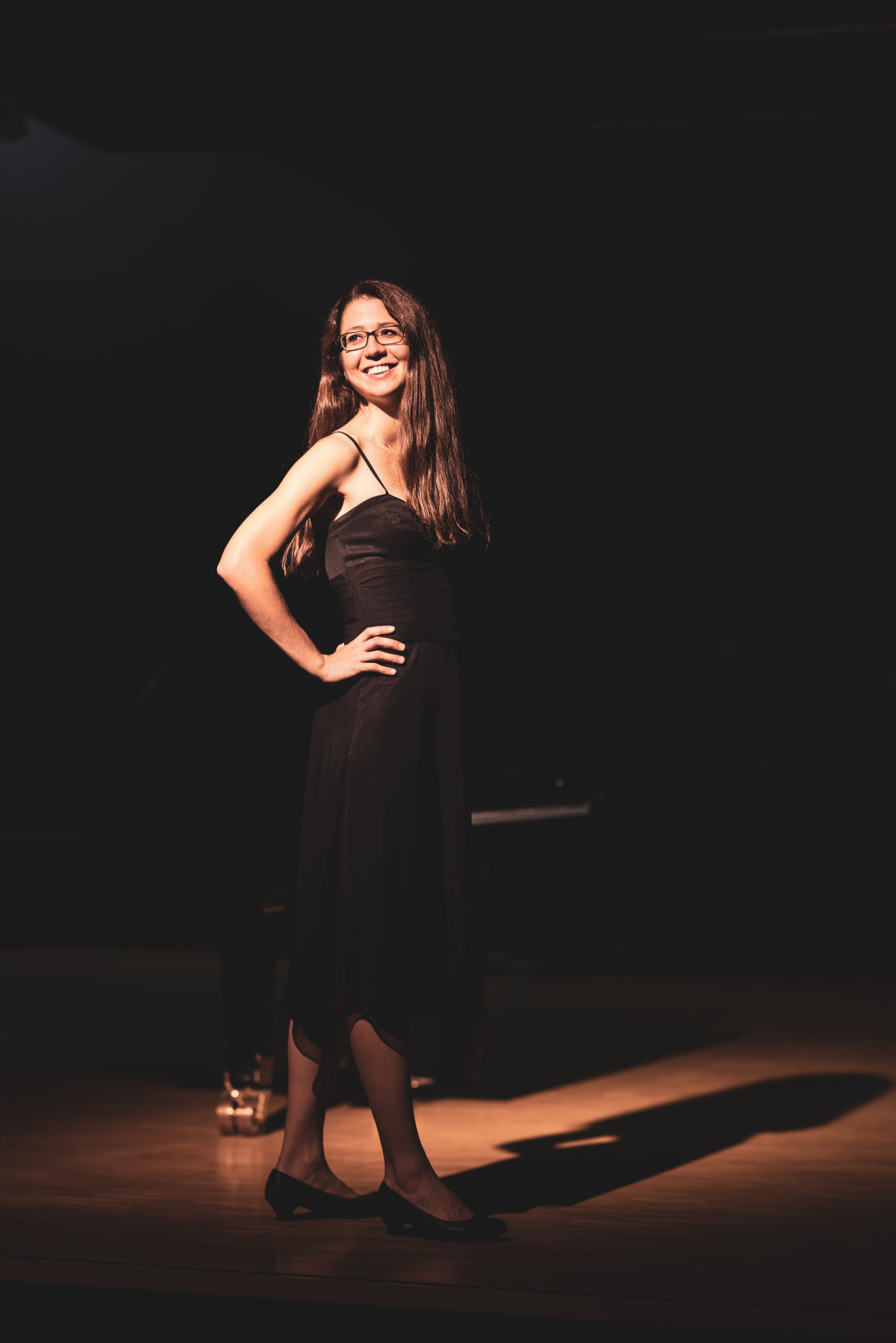Rules for the 2025 piano competition
Concours international de piano ouvert aux jeunes pianistes nés après le 1er janvier 2005
Dates of the competition
Le Concours international de piano Hélène de Montgeroult aura lieu les 15 et 16 novembre 2025
Regulations
Le concours
Le concours est ouvert aux pianistes de toutes nationalités.
Pour les candidat·e·s mineur·e·s, l’inscription doit être accompagnée d’un accord du/de la
représentant·e légal·.
Le concours comporte 4 degrés selon l’âge des pianistes.
Dans chaque degré, la candidate ou le candidat interprétera, dans l’ordre de son
choix, un programme comprenant une étude imposée d’Hélène de Montgeroult et au moins deux
pièces de styles et d’époques différents.
Les candidat·e·s respecteront strictement les minutages prescrits pour chaque degré, y compris
les pauses. Il est fortement recommandé mais pas obligatoire de jouer par coeur
Le nombre total de candidats est limité à 40. En principe, 10 par catégorie.
Nouveau : Une préselection sera effectuée sur vidéo. En même temps que leur inscription, les
candidats enverront un enregistrement vidéo récent. Cette vidéo peut être simplement réalisée au
moyen d’un téléphone portable. Le programme est libre. Les pièces enregistrées peuvent être jouées au
concours. La durée de cet enregistrement est précisée pour chaque degré.
Ces videos seront transmises par Swisstransfer ou WeTransfer. Les liens
sont à indiquer dans le bulletin d’inscription.
Il est autorisé d’envoyer une vidéo plus longue qu’indiqué ou une vidéo de divers extraits!
Les résultats de la présélection seront communiqués aux candidat·e·s au plus tard le 20
juin 2025
Art. 2 Programme
Level 1 : ce degré s’adresse aux pianistes nés dès le 1er janvier 2013.
Étude n° 7 en mi min. « Pour que [les deux mains ] fassent également bien des traits
semblables »
Le minutage total doit être compris entre 5 et 9 minutes.
Vidéo : programme libre . Durée 2-3’
Level 2 : ce degré s’adresse aux pianistes nés entre le 1er janvier 2010 et le 31 décembre 2012
Étude n° 29 en do min. « Pour parcourir le clavier avec netteté »
Le minutage total doit être compris entre 7 et 12 minutes.
Vidéo : programme libre . Durée 2-3’
Level 3 : ce degré s’adresse aux pianistes nés entre le 1er janvier 2008 et le 31 décembre 2009.
Étude n° 62 en Mi b maj. «Étude de main gauche. Pour apprendre à chanter en se croisant sur la
droite »
Le minutage total doit être compris entre 9 et 14 minutes.
Vidéo : programme libre . Durée 3-5’
Degré 4 : ce degré s’adresse aux pianistes nés entre le 1er janvier 2005 et le 31 décembre 2007.
Étude n° 107 en ré min. « Étude de main gauche. Pour lui donner de la rapidité dans un trait
continu »
Le minutage total doit être compris entre 12 et 18 minutes.
Vidéo : programme libre . Durée 3-5’
Il est à noter que l’organisateur ne peut pas accepter les œuvres pour piano préparé
Les partitions des études imposées sont disponibles aux Editions Modulation. Les candidats résidant en Suisse peuvent s’adresser au secrétariat du Concours (utiliser le formulaire de contact) qui les leur fera parvenir avec un bulletin de versement.
Full rules here
Les inscriptions sont closes Les résultats de la présélection seront communiqués aux candidats au plus tard le 20 juin 2025
Registration fee
The registration fees are fixed as follows:
Level 1 : 30 CHF
Level 2 : 40 CHF
Level 3 : 50 CHF
Level 4 : 60 CHF
The registration fee will only be refunded if the competition or a grade is cancelled by the organiser. In all other cases, it is due.
Banque cantonale de Fribourg
IBAN: CH92 0076 8300 1638 5100 1
SWIFT/BIC: BEFRCH22
Clearing : 768
CCP: 17-49-3
Concours Hélène de Montgeroult-de Nervo
1680 Romont
Awards
Level 1
First prize : 200 CHF
Deuxième prix : 100CHF
Troisième prix : 50 CHF
Prix Dénervaud : 50CHF
Level 2
First prize : 300 CHF
Deuxième prix : 150CHF
Third prize : 100 CHF
Prix Dénervaud : 100CHF
Level 3
First prize : 400 CHF
Deuxième prix : 200CHF
Third prize : 150 CHF
Prix Dénervaud : 150CHF
Level 4
First prize : 500 CHF
Récital au château de Montgeroult 1000€
Deuxième prix : 250CHF
Third prize : 200 CHF
Prix Dénervaud : 200CHF
Special prizes
Amis d’Hélène de Montgeroult décerné au lauréat du 1er prix du degré 4 :
Récital au château de Montgeroult 1000€
Prix Dénervaud :
décerné à la meilleure interprétation de l’étude imposée
Jury
Brigitte Meyer

Brigitte Meyer, a Swiss pianist, sees music as a spiritual dialogue and a rite of communion between human beings. Her natural musicality and deep conviction enable her to reveal the hidden meaning of the works she performs.
Born in Biel, she began giving concerts at the age of 11. She studied brilliantly with Denise Bidal in Lausanne and then with Bruno Seidlhofer at the Vienna Academy of Music, where she was awarded the Reifeprüfung and the Bösendörfer Prize in 1971. In 1975, she was first runner-up in the Clara Haskil Competition in Vevey. She has taken part in numerous international festivals and performed in prestigious venues throughout Europe, North and South America, the Middle East and Japan. She collaborates with many renowned conductors and musicians, and her vast repertoire ranges from Bach to contemporary music.
In addition to her performances, she also teaches at conservatoires and gives masterclasses throughout the world. Her remarkable recordings include Mozart concertos, Beethoven sonatas and the complete piano works of Mendelssohn.
Philippe Chanon

French-Swiss pianist, Philippe Chanon was born in Burgundy on August 1, 1963.
He studied at the CNSM in Lyon and the HEMs in Geneva and Lausanne.
He holds three State Teaching Diplomas and the Certificate of Aptitude, a 1st Prize in Virtuosity, the National Diploma of Higher Musical Studies, a 1st Prize at the Vierzon International Chamber Music Competition and a 3rd Prize at the Lucette Descaves French Music Competition.
His teachers were Pierre Pontier and Alain Planès: François-René Duchâble, Nikita Magaloff, Jean-Bernard Pommier, Paul Badura-Skoda.
He has made a name for himself with several critically acclaimed recordings of French music.
He has been invited to give numerous concerts and masterclasses in Europe, North and South America.
Philippe Chanon is passionate about teaching and deeply committed to its development. He is currently deputy director of the Geneva Conservatory of Music, while continuing to teach.
Il est vice-président de la Fondation Les instruments de la Paix-Genève.
Fiona Hengartner

Fiona Hengartner is a Swiss pianist who has distinguished herself as a concert performer, co-repetitor and orchestral pianist. She teaches piano at the Conservatoire de Fribourg and also holds the position of accompanist there.
A fan of chamber music, she regularly collaborates with cellist Isabel Gehweiler, offering concerts that combine different art forms and highlight little-known composers. Together, they have recorded two albums.
Fiona Hengartner is a member of the Quatuor Essor, an ensemble comprising two pianos and two percussion instruments. The quartet is renowned not only for its arrangements of orchestral works but also for commissioning original works from contemporary composers. In 2021, the quartet will release its CD ‘Music for four Musicians’.
Fiona Hengartner est lauréate de plusieurs bourses et concours.
Where will the competition take place?
The competition will take place in Romont (Fribourg) in Switzerland. This town, located south-west of Fribourg on the Geneva-Zurich SBB line, was developed around a 13th century castle. It is also home to a Gothic collegiate church with important contemporary stained glass windows, the remains of the medieval wall, and the Vitromusée, musée suisse consacré au vitrail et aux arts du verre. Les épreuves du concours auront lieu au BicubicThis cultural and sports centre, built in 2005, has a 450-seat auditorium equipped with an excellent concert grand piano Steinway.
Why host a piano competition for young people?
- To play the work of Hélène de Montgeroult (1764-1836). Her Études address many aspects of piano playing in pages of great artistic value. We wish to make them known to as many people as possible and encourage teachers to include them in their students' programmes.
- discover her music
- To encourage the practice of classical music in general and the piano in particular. Competitions for young pianists stimulates the students' instrumental practice and makes them progress.
- To give young musicians the opportunity to compete with their peers in a healthy competition. Even if the main motivation of the students must remain the music itself, some young people find additional stimulation in the prospect of a confrontation and are therefore pushed to strive for excellence.
- So that young pianists have the opportunity to receive outside advice. After the jury's deliberations and the announcement of the results, the candidates are given time to talk to one or other of the members of the jury and thus have the opportunity to receive expert advice on the continuation of their training and the development of their talent.
- To encourage exchanges between teachers. As musicians are very often in the company of their teachers, it is an opportunity for them to meet colleagues and to exchange on their experience and their teaching practice.
